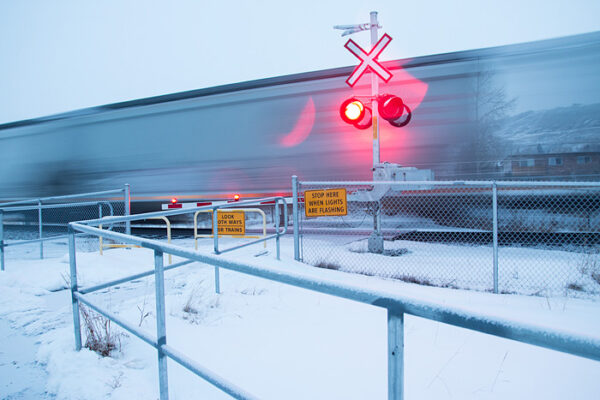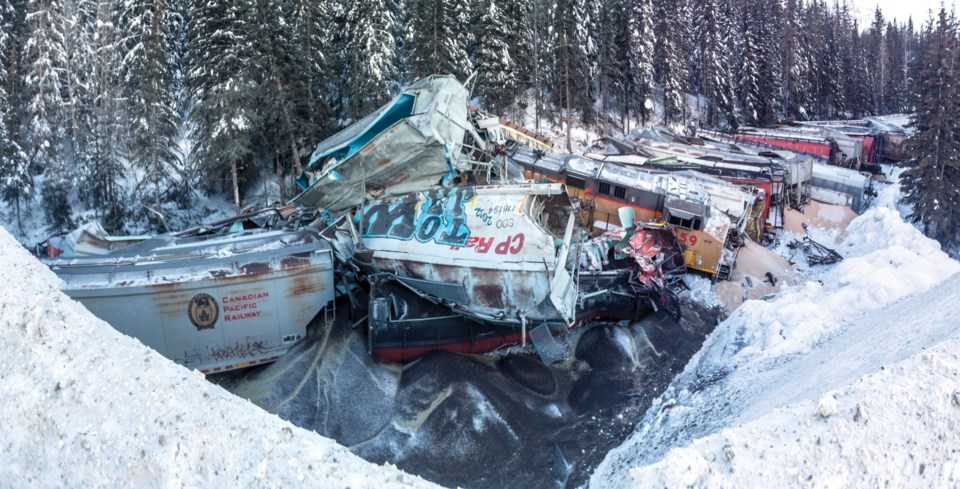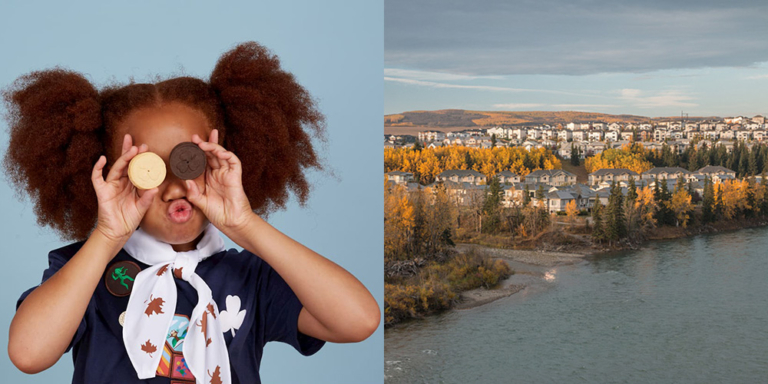Most people who live in Cochrane love the town for many reasons, from its amazing community spirit to its picturesque river valley setting.
But if there is one thing that is unsettling for many residents, it is the constant train traffic through town.


Anytime a train rolls through town, car and pedestrian traffic is almost completely shut down as the train blocks the streets.
Lots of homes are right next to train tracks. Some people think the ‘romantic’ click-clack of a passing train is cool, but others find the frequent mechanical noise really annoying.
Another concern, especially after the tragic Lac-Mégantic rail disaster in Quebec in 2013, is the worry of an explosion causing a similar catastrophe here in Cochrane.
Mark Bretherton, a seasoned locomotive engineer, constantly casts a wary eye on the trains chugging past his home in Cochrane, just a block away from the tracks.
His decades of experience on these very trains have left him deeply concerned about their safety standards.
Bretherton’s concerns stem from his experience with the troubling culture within the railway industry, one that, according to him, prioritizes profit over safety.
“There’s an old saying on the railway, ‘Uphill slow, downhill fast, profit first and safety last,’” Bretherton told CBC News. “It’s a known problem that’s been going back for decades [and] things are not improving.”
Profit over Safety?
In 2019, Bretherton, while steering a massive Canadian Pacific Kansas City (CPKC) train weighing about 14,000 tons and stretching 10,000 feet, encountered a series of brake failures.
The train, laden with merchandise, including diesel fuel and hazardous waste, was navigating the challenging terrain of Field Hill in the Rocky Mountains. The hill, located east of Field BC, is known for its steep tracks and sharp curves.


Bretherton immediately sensed danger when the brakes malfunctioned during the descent. He managed to stop the train.
He alerted the rail traffic controller, cautioning that the problem would likely persist if the train continued downhill.
However, his concerns were disregarded, and he was instructed to continue. The brakes started to fail again, but Bretherton managed to stop the train again, and it was time for a crew shift change.
The replacement crew took over, and Bretherton warned them of the problems.
“They arrived on the scene, and I begged them not to take the train; I explained to him what the problems were. I said, ‘Please don’t take this down the hill,'” Bretherton explains.
But they were ordered down the hill.
The train ultimately derailed.
Thankfully, there were no injuries, but the incident left an indelible mark on Bretherton.
His Worst Fears Confirmed
Bretherton’s worst fears were confirmed a month later by a tragic derailment that occurred on the same hill, resulting in the deaths of three crew members.
These events highlight a disturbing pattern in the rail industry, as emphasized by Fritz Edler, a representative of Railroad Workers United.
Edler points out that deteriorating working conditions and safety standards are driving many workers to contemplate leaving the industry, haunted by the fear of being involved in a catastrophic accident.
CPKC, however, defends its safety record, stating that safety is a core aspect of its operations.
The company boasts that it has a commendable track record in train accident frequency and claims to have implemented various safety measures after the 2019 derailments.
Additionally, the Railway Association of Canada underscores the industry’s substantial investment in safety initiatives over the last decade.


A Different Story on Safety?
Despite the industry’s claims, Bretherton’s account and a Transportation Safety Board report of the incidents paint a much different picture.
The Safety Board’s report highlights multiple issues leading to the derailment, including unconventional practices like using tie wraps on gladhand couplings, which may have caused brake pipe leaks or pressure fluctuations.
It also noted the problematic marshalling of the train (the way the train is connected), with heavy and light cars alternating, which increased the risk of derailment.
This concern is particularly acute as trains become longer and heavier, significantly increasing the potential for accidents.
In response to these incidents, CPKC has revised its marshalling restrictions and reviewed train compositions.
After the fatal 2019 derailment, it also introduced new speed restrictions and advanced training programs for locomotive engineers.
As for Bretherton, he remains on stress leave, contemplating his future in the industry.
He expresses a willingness to return to work, but only under improved safety conditions.
Meanwhile, every passing train leaves him nervous.






